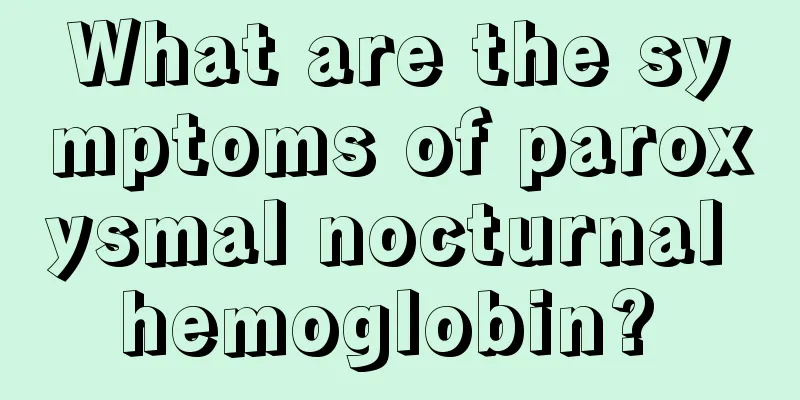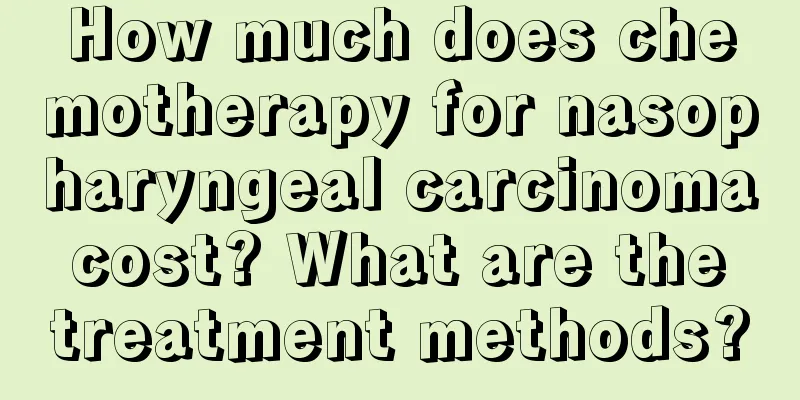What are the symptoms of paroxysmal nocturnal hemoglobin?

|
Paroxysmal nocturnal hemoglobinuria is actually a rare disease. If it occurs, the patient will experience symptoms of anemia and intravascular hemolysis, and in severe cases, it may also lead to complications such as renal failure. 1. Thrombosis Thrombotic events are the main cause of death in PNH patients and can occur in both arteries and veins. Thrombosis in PNH patients is the result of multiple factors. During complement activation and hemolysis in PNH patients, some substances, such as C5a, are released, which can put the body in a potential inflammatory state. Inflammation can cause monocytes and vascular endothelial cells to overexpress and release tissue factor, thereby initiating the coagulation process. Inflammation can also interact with the coagulation system. Inflammatory factors aggravate coagulation abnormalities, and coagulation abnormalities can aggravate the inflammatory response, forming a vicious circle. Inflammatory mediators can damage endothelial cells, increase endothelial cell activation, and release a large amount of tissue factor into the blood, initiating the extrinsic coagulation pathway. 2. Pulmonary hypertension Repeated intravascular hemolysis increases the amount of free hemoglobin in the blood. The ability of hemoglobin to bind NO is a hundred times higher than that of oxygen, and the consumption of NO increases. Hemolysis or inflammation damages vascular endothelial cells, and the NO synthesized by endothelial cells decreases. Hemolysis can release arginase, which increases the decomposition of L-arginine, the precursor of NO synthesis, and reduces NO synthesis. This will eventually lead to the clearance of NO and a decrease in its bioavailability. The amount of NO in a normal body is 6 to 10 times that of a PNH patient. NO plays an important physiological role in the body: regulating smooth muscle function, balancing vascular contraction and relaxation activities, and maintaining organ blood flow. Based on the physiological function of NO, the NO content in the blood decreases, the pulmonary vascular smooth muscle dysfunction, and the pulmonary vascular resistance increases, gradually forming PAH. Dyspnea is a typical clinical manifestation of PAH and right ventricular dysfunction. There are two important indicators for measuring PAH: color Doppler and amino terminal-pro brain natriuretic peptide (NT-proBNP). The level of BNP is associated with the degree of PAH and right ventricular dysfunction. 3. Chronic kidney disease Chronic kidney disease is also the result of multiple factors. Repeated hemolysis causes hemoglobin to be reabsorbed in the proximal tubules of the kidney and decomposed into hemosiderin in the proximal tubular epithelial cells. Hemosiderin is deposited in the tubular epithelial cells and damages the renal tubules. The consumption of NO and the decrease in its bioavailability cause renal vasoconstriction, increased resistance, decreased renal blood flow, and renal ischemia and hypoxia. Thrombosis in the kidney can affect renal function and cause acute and chronic renal damage. Clinical manifestations: renal tubular epithelial cells are excreted in the urine to form hemosiderin in the urine. Thrombosis in the kidney causes flank pain or abdominal pain. Radiologically, it may manifest as an enlarged diseased kidney. If bilateral renal vein thrombosis occurs, it may cause acute renal failure, manifested as oliguria, anuria, and progressive increase in blood creatinine and urea nitrogen. Abnormal tubular function may also lead to renal glucosuria and proteinuria. Severe hypertension related to hemolysis may also lead to glomerular sclerosis. 4. Others Common clinical symptoms include abdominal pain, dysphagia, dyspnea, erectile dysfunction, fatigue, etc. Normal daily activities cannot be maintained, which seriously affects the quality of life of patients. The reason is due to hemolysis and NO consumption. |
<<: Spinal cord anterior horn cell lesions are caused by these causes
>>: Will long-term sinus tachycardia lead to sudden death?
Recommend
How long can fat grafting last
Fat filling is to take out a part of your own fat...
What are the effects and functions of pomegranate peel?
Have you ever paid attention to and understood th...
What are the functions and effects of Shenmai Injection Liquid
Currently, Shenmai Injection has a very powerful ...
How to treat left shoulder rib neuralgia?
The treatment of left shoulder rib neuralgia must...
Why do I always feel the urge to urinate at night?
It is normal to urinate when you feel like urinat...
What are the treatments for peritonitis
Peritonitis is a type of abdominal disease. The m...
What does lesion calcification mean
Many older people who go to the hospital for phys...
What disease is it that makes the ear feel blocked
The feeling of having something in the ear is ver...
What should I do if I am diagnosed with nasopharyngeal cancer in six months of pregnancy?
What should I do if I am diagnosed with nasophary...
What is the reason for congenitally large eye bags
For those who love beauty, what they hate most in...
Dietary treatment for skin cancer
The causes of skin cancer are closely related to ...
Is endometrial cancer hereditary?
Inheritance, will endometrial cancer occur in pat...
How is gallbladder adenomyosis formed
The formation of gallbladder adenomyosis is mainl...
How to prevent hepatitis B from turning into liver cancer? Remember these 4 points to prevent hepatitis B from turning into liver cancer
I believe everyone has heard of hepatitis B. It i...
What are some ways to increase hair volume?
In daily life, changes in weather or excessive me...









